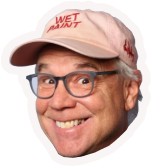Subscribe to read the full story
Become a paid subscriber to Hell Gate to access all of our posts.
SubscribeHell Gate is owned & run by journalists covering NYC.
Ahoy! NYC ferries are back to running full service on Saturday.


Become a paid subscriber to Hell Gate to access all of our posts.
Subscribe